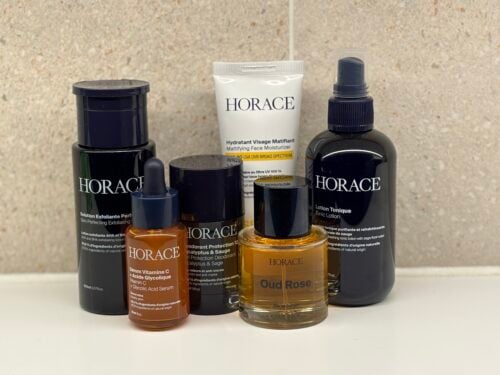Horace Skincare Review: Why Horace Is Dominating The Modern Man’s Bathroom Cabinet
Feb 21, 2026Biological Ageing Can Be Reversed By Cutting One Ingredient From Diet, New Study Reveals
- Sep 24, 2024
- 0 Comments
351

US scientists have revealed that the key to longevity and slowed biological ageing could be the removal of one all-too-common ingredient from your diet.
From the 3000-year-old protein hack that built history’s strongest warriors to the inclusion of the occasional sweet treat to ward off the late-life blues, your nutritional intake can have massive effects on pretty much every aspect of your life. A new study from the eggheads at UC San Francisco has found further proof of this, presenting findings that show biological ageing can be slowed at the cellular level by excluding a single ingredient from your diet.
Looking at how three different measures of healthy eating affected the so-called “epigenetic clock” — a term used by biochemists to estimate both health and lifespan under one neat title — the scientists found that the better people ate, the younger their cells looked and functioned. Most importantly, however, was their discovery that for every gram of sugar added to the diet, a noticeable increase in epigenetic age could be traced alongside it.
RELATED: 100-Year-Old Shares The Secret To His Longevity
The Study
Dorothy Chiu, a postdoctoral scholar at UCSF’s Osher Center for Integrative Health and the lead author of the study — which recently appeared in the JAMA Network Open — explained: “The diets we examined align with existing recommendations for preventing disease and promoting health, and they highlight the potency of antioxidant and anti-inflammatory nutrients in particular […] From a lifestyle medicine standpoint, it is empowering to see how heeding these recommendations may promote a younger cellular age relative to chronological age.”
This is one of the first-ever studies to explicitly show the relationship between added sugar and epigenetic ageing and is pioneering in its focus on a heterogeneous — in this case, that means both Black and White subjects — group of women during their midlife. Previous studies have, you’ll be unsurprised to hear, focused almost exclusively on older, white, and predominantly male participants.
Study co-author, Elissa Epel, a UCSF professor in the Department of Psychiatry and Behavioural Sciences, explains how the study deepens our specific understanding of how sugar affects ageing:
“We knew that high levels of added sugars are linked to worsened metabolic health and early disease, possibly more than any other dietary factor […] Now we know that accelerated epigenetic aging is underlying this relationship, and this is likely one of many ways that excessive sugar intake limits healthy longevity.”
Nutrients For The Win
Analysing food records from 342 participants with a mean age of 39 — all from the Northern California area — the scientists compared subjects’ diets to their epigenetic age, which they determined using saliva samples. Researchers then scored the participants’ diets to see how they compared to that holy grail of nutritional palettes, the Mediterranean Diet, as a measure of how many antioxidants and anti-inflammatory properties their foods included.
Finally, they put together a score which they have coined the “Epigenetic Nutrient Index”, which is based specifically on nutrients, rather than foods, that have been linked to DNA maintenance and repair. All your big-hitting vitamins — A, C, B12 and E, folate, selenium, magnesium and dietary fibre — make the cut.
The more nutrients the diet contains, the lower the epigenetic age. Most interestingly, however, was that no matter how good the diet, biological aging still rapidly increased when added sugar came into the picture.
Co-senior author Barbara Laraia summarises it better than we ever could: “Given that epigenetic patterns appear to be reversible, it may be that eliminating 10 grams of added sugar per day is akin to turning back the biological clock by 2.4 months, if sustained over time […] Focusing on foods that are high in key nutrients and low in added sugars may be a new way to help motivate people to eat well for longevity.”
So there you have it, fellas, no treats allowed… at least, if you want to live forever.
Publisher: Source link







